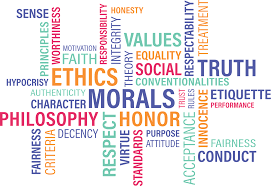About interpreting

An interpreter is a person specially trained to convert oral messages from one language to another. A translator is a person specially trained to convert written text from one language to another. ... As with other professions, the work of professional interpreters and translators are guided by codes of ethics.
Accuracy
Often, the medical interpreter acts as a kind of mediator between doctor and patient. In this regard, they have anethical responsibility to faithfully transmit a message to the patient regarding the observations made by the specialist, and vice versa. In the context of the healthcare industry, providing excellent interpreting is paramount/invaluable/of the utmost importance.
Confidentiality
Part of the ethical code of an interpreter is respect for the privacy of every person. In some cases, they even sign confidentiality agreements.
Cultural awareness
There are many cultural differences to be aware of. In one culture, an interpreter may have to be very direct in order for the message to be understood, whereas in another culture, respect and politeness are a must for communication to proceed.
As Interpreters, we not only have a duty to convert language, but also to transmit a message.
Professionalism
The role of a professional interpreter is to enable communication between two or more parties who speak different languages.
Because there is no one there to monitor performance, the interpreters themselves must self-monitor, holding themselves accountable. This commitment to highest standard is a critical piece of ethical interpretation.
